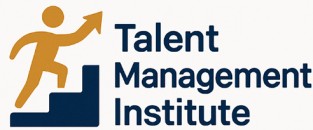Understanding Red Recruitment Companies
Insight into the Nature of Red Recruitment Companies
Red recruitment companies play a pivotal role in the ever-evolving recruitment industry, helping job seekers find suitable job opportunities while offering recruitment staffing services to businesses looking for the right talent. These companies specialize in matching candidates with job offers that align with their skills and career goals, making use of advanced technology recruitment platforms to streamline the process. Primarily, red recruitment companies operate similarly to a job board, but with a more personalized touch. They gather detailed candidate profiles, including experience and resources, to better align job seekers with potential employers. By leveraging wide networks and global industry connections, such companies can efficiently manage open recruitment processes and placement services. This strategically benefits both the job seekers looking to apply and the recruitment agency's own team, ensuring a streamlined and effective recruitment experience. In an industry where human resources play a critical role, red recruitment companies are at the forefront, adapting to economic trends and changes in the job market. Their presence is influential not only in the United States but also in regions like Eastern Europe, where they continue to bridge the gap between candidates and job opportunities across various sectors. When discussing recruitment agencies, it's essential to consider the privacy policy they uphold, including the use of essential cookies and other cookie policy considerations. This transparency ensures trust and maintains strong relationships between candidates, companies, and recruitment services providers alike. Collectively, the red recruitment companies contribute significantly to the recruitment landscape, augmenting the job search process for candidates and offering customized recruitment staffing services tailored to meet a company's specific needs. As they navigate their challenges and implement effective talent management strategies, they continue to thrive and adapt within the shifting global economy.The Role of Technology in Recruitment
The Powerful Intersection of Technology and Recruitment
In recent years, the recruitment landscape has experienced a significant transformation driven by technological advancements. For red recruitment companies, utilizing this shift is not just advantageous but essential to sustain their edge in the competitive industry. The integration of technology in recruitment processes enables these companies to tap into a wider pool of candidates, facilitating a seamless connection between job seekers and potential employers. With recruitment agency services increasingly moving online, technology allows for the efficient handling of vast amounts of candidate details, which is pivotal as companies explore opportunities in various sectors globally, from Eastern Europe to the local US market. Technology-based solutions like job boards, placement services, and sophisticated recruitment staffing platforms have become indispensable. These tools help reduce the daunting task of manually sifting through thousands of job applications. Automated systems filter resumes that match specified criteria, presenting only the most qualified candidates to human resources teams. For job seekers, technology simplifies the job search journey. By visiting a recruitment company's website, candidates can easily apply online for open positions, manage their application status through an interactive job board, and even receive job offers through automated notifications. This efficient process enhances the overall job-seeking experience, aligning with privacy policy and cookie policy constraints necessary in today’s data-driven age. Moreover, technology recruitment is not just about efficiency; it also plays a crucial role in enhancing candidate experience. By using artificial intelligence, companies can personalize interactions, tailoring job searches to individual profiles and preferences. This not only serves the immediate needs of candidates but also helps recruitment agencies build lasting relationships, fostering a sense of trust and loyalty. Recruitment companies that embrace these tools find themselves better positioned to meet global demands and industry changes. They can deploy resources effectively, ensuring that talented candidates find teams and positions that suit them best. While technological integration can be complex, the potential benefits to recruitment companies are substantial, offering a greater scope for recruiters to join teams with specific needs while adapting to fluctuating economic trends.Challenges Faced by Red Recruitment Companies
Navigating Common Obstacles in Red Recruitment
The recruitment industry, especially within the sphere of red recruitment companies, faces a distinctive set of challenges that can impact their effectiveness in connecting job seekers with suitable opportunities. As with any industry, those in recruitment must navigate these obstacles with skill and adaptability to remain competitive and capable of delivering top-notch services.
One of the primary challenges is sourcing the right candidates in an ever-shifting job market. Recruitment companies must invest significant resources in understanding the dynamics of job offers and job seekers' desires. This often involves leveraging advanced technology recruitment tools to streamline the job search and placement services, ensuring that candidates and job offers are efficiently matched.
Additionally, the industry grapples with the global demand for talent. Companies are increasingly seeking candidates from diverse regions, such as Eastern Europe, to fill open roles. This global scope demands that recruitment agencies, including those within the red recruitment sector, must refine their strategies to effectively manage international candidates and job placements without infringing on local employment laws and privacy regulations, such as the cookie policy and essential cookies use.
The recruitment company, especially those operating in red recruitment, must also contend with market fluctuations influenced by economic trends. Economic downturns or booms can significantly impact the number of job opportunities available, requiring recruitment teams to swiftly adapt strategies and resource allocation to maintain a stable workflow.
Finally, the competition within this arena is fierce, with other recruitment agencies striving to capture a larger market share by offering enhanced recruitment staffing solutions and superior candidate experiences. Maintaining a competitive edge not only involves technology integration but also a commitment to human resources excellence and exemplary customer service to attract both candidates and clients.
Strategies for Effective Talent Management
Strategies for Enhancing Talent Management in Red Recruitment
In the fast-paced landscape of the recruitment industry, red recruitment companies must adopt robust strategies for effective talent management to meet the evolving needs of job seekers and employers. Here are some critical strategies to consider:- Leverage Technology: Harnessing technology is indispensable for any recruitment company. Implementing cutting-edge recruitment tools can streamline the process, making it easier to manage recruitment staffing and track candidates. Red recruitment firms in the US need to employ solutions that allow efficient job search and job board integration, offering a seamless experience for both job seekers and recruitment staffing needs.
- Build a Dynamic Team: A recruitment agency's success largely rests on its team. Managers should focus on assembling a team with diverse skills and experience. This can lead to better recruitment solutions and job placements, enhancing the company's reputation and attracting more candidates and clients. Opportunities for team training and development should also be prioritized to keep up with the industry's ever-changing landscape.
- Embrace Open Communication: Transparency and open communication are vital elements. Clear communication channels between the recruitment company, job seekers, and clients ensure that all parties are on the same page. This builds trust, enhances the candidate experience, and helps in maintaining long-term relationships.
- Focus on Candidate Experience: A positive candidate experience can set a company apart. It begins from the moment candidates apply for a job offer to the final placement services. Enhancing this experience involves providing clear details about job offers, employment resources, and real-time feedback throughout the process. This approach not only helps in attracting top talent but also strengthens the red recruitment brand globally.
- Stay Compliant with Policies: Observing privacy policy and cookie policy is essential for safeguarding both the company and the candidates. Companies must emphasize data protection, ensuring essential cookies and personal details are managed responsibly. This compliance builds credibility and trust among job seekers and clients.
- Adaptability in Global and Economic Trends: Recruitment strategies should be agile enough to adapt to global and economic changes. Whether companies focus on domestic recruitment or expand services to regions like Eastern Europe, remaining informed about economic patterns can provide insights for strategic decision-making.
The Impact of Economic Trends on Recruitment
Economic Influence on Recruitment Dynamics
In the ever-evolving landscape of recruitment, understanding how economic trends impact talent sourcing and company hiring practices is paramount. The recruitment industry, notably including red recruitment entities, experiences shifts driven by economic fluctuations.- Labor Market Trends: Economic booms typically yield a proliferation of job offers, compelling companies to intensify recruitment efforts to meet increased workforce demands. Conversely, during economic slowdowns, recruitment agencies often see a diminished pool of job opportunities. This ebb and flow affect how a recruitment company like Red Recruit strategizes and adapts their placement services.
- Globalization Effects: The global nature of business means that economic trends extend beyond local markets. Companies and their recruitment services must navigate global economic changes, which influence jobs in varying regions, including red recruitment's focus on both local and international candidates.
- Technological Advancements: In addition to economic effects, red recruitment companies leverage technology to streamline job search processes, facilitate efficient candidate matching, and ensure essential privacy and cookie policies are in line with digital practices. These technology instruments are cost-effective and resource-efficient, essential during economic uncertainties.
- Demand for Specialized Skills: Economic trends frequently alter the type of talent in demand. Job seekers with niche skills, especially those aligned with emerging industries in technology or Eastern Europe, often find more opportunities even in tight economies.





-large-teaser.webp)







